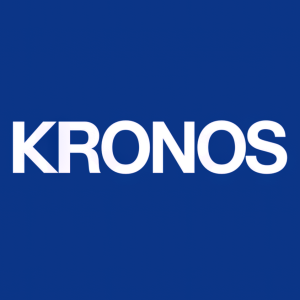Kronos Worldwide, Inc. Reports Third Quarter 2023 Results
Dallas, Texas, Nov. 02, 2023 (GLOBE NEWSWIRE) -- Kronos Worldwide, Inc. (NYSE:KRO) today reported a net loss of
Net sales of
Our TiO2 segment loss (see description of non-GAAP information below) in the third quarter of 2023 was
Our net loss before interest expense, income taxes and depreciation and amortization expense (see description of non-GAAP information below) in the third quarter of 2023 was
Other operating income, net in the first nine months of 2023 includes an insurance settlement gain of
Commenting on the operating results and outlook, James M. Buch, President and Chief Executive Officer, said “This is clearly a historic downturn for the TiO2 industry. In response, we are focused on preserving liquidity by operating our plants at reduced rates to ensure inventory levels are aligned with near-term demand. As a team, we have implemented process improvements and manufacturing efficiencies which have reduced the impact of unabsorbed fixed costs recognized as a result of lower operating rates and we have initiated other cost savings measures which should result in improved margins. These decisive steps taken over the last 12 months to preserve our liquidity, improve our manufacturing flexibility and reduce costs will continue to drive value for our business in 2024 and beyond while allowing us to stay focused on our sustainability goals.” Mr. Buch continued, “We are beginning to see improved demand in certain markets and we believe low customer inventories and reduced capacity in the industry will fuel a return to profitability when demand returns to normal levels. Operating at reduced capacity has allowed us to accelerate maintenance in our facilities and I am confident that we have taken the steps necessary to quickly capitalize as industry demand strengthens.”
The statements in this release relating to matters that are not historical facts are forward-looking statements that represent management's beliefs and assumptions based on currently available information. Although we believe that the expectations reflected in such forward-looking statements are reasonable, we cannot give any assurances that these expectations will prove to be correct. Such statements by their nature involve substantial risks and uncertainties that could significantly impact expected results, and actual future results could differ materially from those described in such forward-looking statements. While it is not possible to identify all factors, we continue to face many risks and uncertainties. The factors that could cause actual future results to differ materially include, but are not limited to, the following:
- Future supply and demand for our products
- The extent of the dependence of certain of our businesses on certain market sectors
- The cyclicality of our business
- Customer and producer inventory levels
- Unexpected or earlier-than-expected industry capacity expansion
- Changes in raw material and other operating costs (such as energy and ore costs)
- Changes in the availability of raw materials (such as ore)
- General global economic and political conditions that harm the worldwide economy, disrupt our supply chain, increase material and energy costs or reduce demand or perceived demand for our TiO2 products or impair our ability to operate our facilities (including changes in the level of gross domestic product in various regions of the world, natural disasters, terrorist acts, global conflicts and public health crises such as COVID-19)
- Operating interruptions (including, but not limited to, labor disputes, leaks, natural disasters, fires, explosions, unscheduled or unplanned downtime, transportation interruptions, cyber-attacks, certain regional and world events or economic conditions and public health crises such as COVID-19)
- Competitive products and substitute products
- Customer and competitor strategies
- Potential consolidation of our competitors
- Potential consolidation of our customers
- The impact of pricing and production decisions
- Competitive technology positions
- Potential difficulties in upgrading or implementing accounting and manufacturing software systems
- The introduction of trade barriers or trade disputes
- Fluctuations in currency exchange rates (such as changes in the exchange rate between the U.S. dollar and each of the euro, the Norwegian krone and the Canadian dollar and between the euro and the Norwegian krone), or possible disruptions to our business resulting from uncertainties associated with the euro or other currencies
- Our ability to renew or refinance credit facilities
- Increases in interest rates
- Our ability to maintain sufficient liquidity
- The ultimate outcome of income tax audits, tax settlement initiatives or other tax matters, including future tax reform
- Our ability to utilize income tax attributes, the benefits of which may or may not have been recognized under the more-likely-than-not recognition criteria
- Environmental matters (such as those requiring compliance with emission and discharge standards for existing and new facilities)
- Government laws and regulations and possible changes therein including new environmental health and safety or other regulations (such as those seeking to limit or classify TiO2 or its use)
- Possible future litigation.
Should one or more of these risks materialize (or the consequences of such a development worsen), or should the underlying assumptions prove incorrect, actual results could differ materially from those forecasted or expected. The Company disclaims any intention or obligation to update or revise any forward-looking statement whether as a result of changes in information, future events or otherwise.
In an effort to provide investors with additional information regarding the Company's results of operations as determined by accounting principles generally accepted in the United States of America (GAAP), the Company has disclosed certain non-GAAP information which the Company believes provides useful information to investors:
- The Company discloses segment profit, which is used by the Company’s management to assess the performance of the Company’s TiO2 operations. The Company believes disclosure of segment profit provides useful information to investors because it allows investors to analyze the performance of the Company’s TiO2 operations in the same way that the Company’s management assesses performance. The Company defines segment profit as net income before income tax expense and certain general corporate items. These general corporate items include corporate expense and the components of other income (expense) except for trade interest income; and
- The Company discloses EBITDA, which is also used by the Company’s management to assess the performance of the Company’s TiO2 operations. The Company believes disclosure of EBITDA provides useful information to investors because it allows investors to analyze the performance of the Company’s TiO2 operations in the same way that the Company’s management assesses performance. The Company defines EBITDA as net income before interest expense, income taxes and depreciation and amortization expense.
Kronos Worldwide, Inc. is a major international producer of titanium dioxide products.
Investor Relations Contact:
Bryan A. Hanley
Senior Vice President & Treasurer
Tel: (972) 233-1700
KRONOS WORLDWIDE, INC.
CONDENSED CONSOLIDATED STATEMENTS OF OPERATIONS
(In millions, except per share and metric ton data)
| Three months ended | Nine months ended | |||||||||||
| September 30, | September 30, | |||||||||||
| 2022 | 2023 | 2022 | 2023 | |||||||||
| (unaudited) | ||||||||||||
| Net sales | $ | 459.6 | $ | 396.9 | $ | 1,587.8 | $ | 1,266.4 | ||||
| Cost of sales | 375.6 | 362.5 | 1,234.0 | 1,157.1 | ||||||||
| Gross margin | 84.0 | 34.4 | 353.8 | 109.3 | ||||||||
| Selling, general and administrative expense | 59.0 | 53.6 | 183.6 | 156.9 | ||||||||
| Other operating income (expense): | ||||||||||||
| Currency transactions, net | 6.7 | (3.9) | 17.1 | 4.6 | ||||||||
| Other income, net | 2.8 | 1.4 | 3.4 | 3.5 | ||||||||
| Corporate expense | (3.7) | (3.6) | (11.4) | (10.8) | ||||||||
| Income (loss) from operations | 30.8 | (25.3) | 179.3 | (50.3) | ||||||||
| Other income (expense): | ||||||||||||
| Trade interest income | .1 | .3 | .2 | 1.0 | ||||||||
| Other interest and dividend income | 1.3 | 1.2 | 1.9 | 4.0 | ||||||||
| Marketable equity securities | (2.9) | - | (.5) | (1.3) | ||||||||
| Other components of net periodic pension and OPEB cost | (2.9) | (1.0) | (9.2) | (4.1) | ||||||||
| Interest expense | (4.2) | (4.3) | (13.0) | (12.8) | ||||||||
| Income (loss) before income taxes | 22.2 | (29.1) | 158.7 | (63.5) | ||||||||
| Income tax expense (benefit) | 1.2 | (8.7) | 34.3 | (19.7) | ||||||||
| Net income (loss) | $ | 21.0 | $ | (20.4) | $ | 124.4 | $ | (43.8) | ||||
| Net income (loss) per basic and diluted share | $ | .18 | $ | (.18) | $ | 1.08 | $ | (.38) | ||||
| Weighted average shares used in the calculation of net income (loss) per share | 115.5 | 115.0 | 115.5 | 115.1 | ||||||||
| TiO2 data - metric tons in thousands: | ||||||||||||
| Sales volumes | 113 | 107 | 399 | 313 | ||||||||
| Production volumes | 131 | 102 | 401 | 296 | ||||||||
KRONOS WORLDWIDE, INC.
RECONCILIATION OF INCOME (LOSS) FROM
OPERATIONS TO SEGMENT PROFIT (LOSS)
(In millions)
| Three months ended | Nine months ended | ||||||||||||||
| September 30, | September 30, | ||||||||||||||
| 2022 | 2023 | 2022 | 2023 | ||||||||||||
| (unaudited) | |||||||||||||||
| Income (loss) from operations | $ | 30.8 | $ | (25.3) | $ | 179.3 | $ | (50.3) | |||||||
| Adjustments: | |||||||||||||||
| Trade interest income | .1 | .3 | .2 | 1.0 | |||||||||||
| Corporate expense | 3.7 | 3.6 | 11.4 | 10.8 | |||||||||||
| Segment profit (loss) | $ | 34.6 | $ | (21.4) | $ | 190.9 | $ | (38.5) | |||||||
RECONCILIATION OF NET INCOME (LOSS) TO EBITDA
(In millions)
| Three months ended | Nine months ended | ||||||||||||
| September 30, | September 30, | ||||||||||||
| 2022 | 2023 | 2022 | 2023 | ||||||||||
| (unaudited) | |||||||||||||
| Net income (loss) | $ | 21.0 | $ | (20.4) | $ | 124.4 | $ | (43.8) | |||||
| Adjustments: | |||||||||||||
| Depreciation expense | 13.0 | 12.1 | 39.0 | 36.6 | |||||||||
| Interest expense | 4.2 | 4.3 | 13.0 | 12.8 | |||||||||
| Income tax expense (benefit) | 1.2 | (8.7) | 34.3 | (19.7) | |||||||||
| EBITDA | $ | 39.4 | $ | (12.7) | $ | 210.7 | $ | (14.1) | |||||
IMPACT OF PERCENTAGE CHANGE IN NET SALES
| Three months ended | Nine months ended | |||||
| September 30, | September 30, | |||||
| 2023 vs. 2022 | 2023 vs. 2022 | |||||
| (unaudited) | ||||||
| Percentage change in net sales: | ||||||
| TiO2 sales volumes | (6) | % | (22) | % | ||
| TiO2 product pricing | (8) | (2) | ||||
| TiO2 product mix/other | (3) | 4 | ||||
| Changes in currency exchange rates | 3 | - | ||||
| Total | (14) | % | (20) | % | ||








